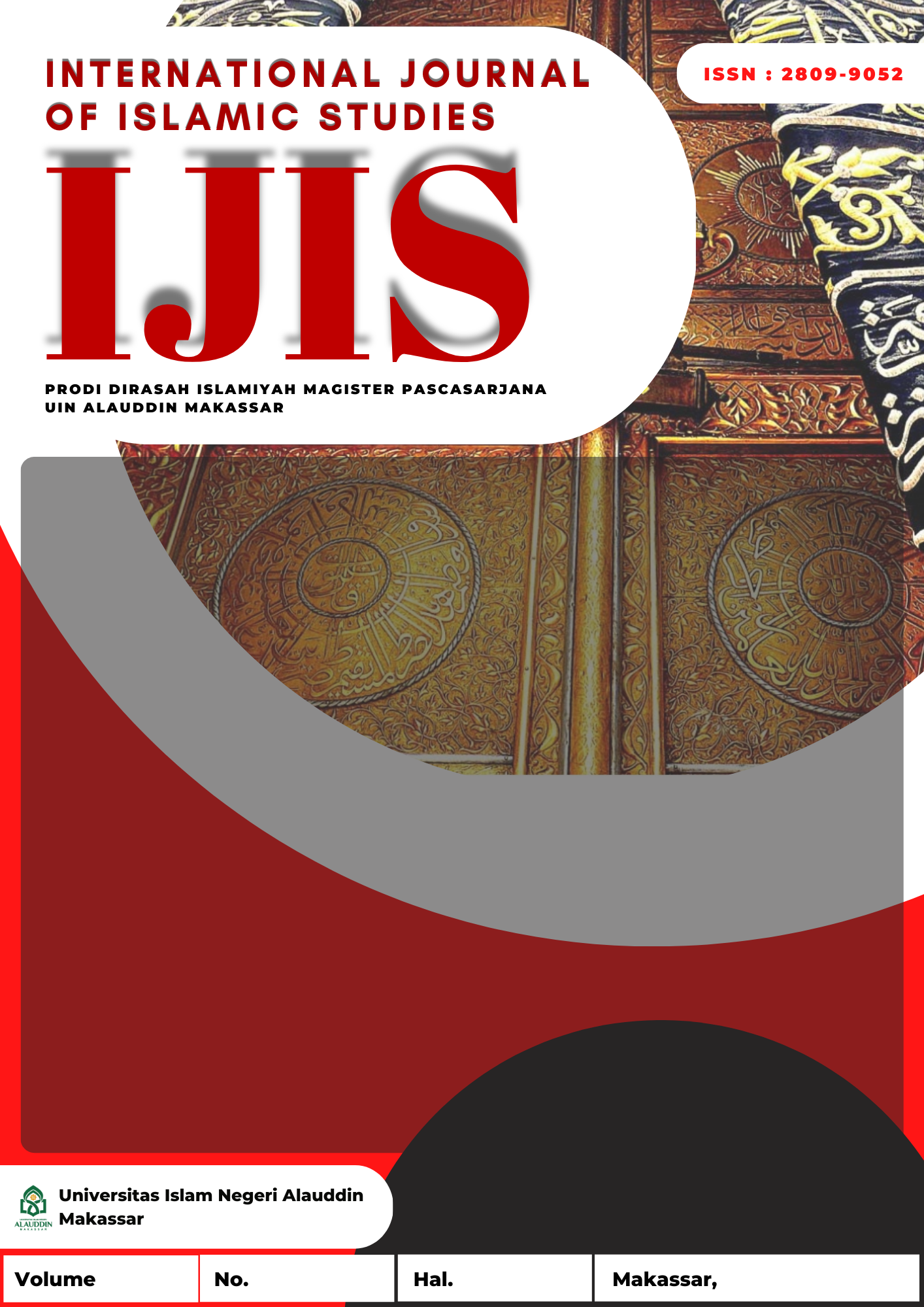AMINA WADUD MUHSIN GENDER THINKING IN THE HERMENEUTIC PERSPECTIVE OF HANS GEORG GADAMER
Abstract
The purpose of this study is to find out the gender thinking of Amina Wadud Muhsin in the view of Hans Georg Gadamer's Hermeneutics. This research is library research using a research approach, namely: philosophical, grammatical, linguistic and phenomenological approaches. Then the source of this research data is taken from books, articles and journals related to the thoughts of Amina Wadud with Gadamer. Furthermore, the data analysis method used is descriptive method, content analysis, interpretation method, comparison, taxonomy. The results of this study indicate that: First, related to Amina Wadud's gender thinking, namely: 1. The creation of humans. According to Amina Wadud that the origin of humans, both male and female, comes from one nafs which is part of the paired system. 2. Leader. Amina Wadud strongly rejected Qawwamun to be limited to the position of men compared to women. However, there must be harmony, so Amina Wadud proposes a new idea, namely the "functionalist" concept. 3. Polygamy. For Amina Wadud, the concept of polygamy is not supported in religion, because there is no justice for women. Amina's gender thinking in the perspective of Hans Georg Gadamer's hermeneutics, in this case the interpreter's position. Amina Wadud places great emphasis on text priors and context. In this case the prior text concerns the background of an interpreter, his views and circumstances. Because an interpreter must dialogue with the text in accordance with any conditions and at any time. Likewise with Gadamer, the concept of language is the most important. This is what Gadamer calls "the influence of history".
References
At-Thabari. Jami al-Bayan an-Ta’wil Ayi al-Qur’an, Dar As-Salam. Cairo Mesir. 1971.
Baidhawi, Ahmad. Feminist Tafsir: The Study of Women in the Qur'an and Contemporary Commentators.Bandung: Nuansa. 2005.
Basyir, Kunawi. Suing Intellectual Shirk with Nasr Hamid Abu Zayd and Amina Wadud. Teosofi: Jurnal Tasawuf dan Pemikiran Islam. Vol. 1. No. 2 (2011).
Budiman, Arif. Sexual Division of Labor, A Sociological Discussion on the Role of Women in Society. Jakarta:Gramedia. 2001).
Departemen Agama RI. Al-Qur'an and its Translation. Jakarta: Bumi Restu. 2011.
Esack, Farid. Islam, Feminism and Empire: A Comparison between the Approaches of Amina Wadud and Saba Mahmood. Journal of Gender and Religion in Africa 21. no. 1 (Juli 2015).
Fanani, Ahmad. Popular Terms Dictionary. Yogyakarta: Mitra Pelajar ar-Ruzz Media. 2010.
Hasan, Riffat. “The Application of Islam and Post-Patriarchal Islam, in Fatima Mersisi, Equal Before Allah. Terj. Tim LSPPA. Yogyakarta: LSPPA. 2001.
http://www.fimadani.com/opini/July 24, 2012 3:23 pm/, diunduh pada tanggal 13 Mei 2022, pukul 22.30 WITA
Husna, Nurul. Classical and Modern Mufassir Views on Polygamy. Tesis, Program Pascasarjana IAIN Sumatera Utara. 2013. h. 89.
Ilyas, Hamim. Oppressed Women The Study of Hadith "Misognisis".Yogyakarta: eLSAQ Press. 2008.
Ilyas, Yunahar. Gender Equality in the Qur'an Study of the Thoughts of the Mufasir. Cet.I. Yogyakarta: Labda Pers. 2006.
Intan, Salma. Highlights on Gender and the Controversy of Women's Leadership. Cet. I. Makassar: Alauddin University Press. 2013.
Irsyadunnas. Amina Wadud's Interpretation of Gender Verses from a Hermeneutic Perspective. Jurnal Musawa. Vol. 14, No. 20. Juli 2015.
Kau, Sofyan A.P. Gadamer's Hermeneutics and Its Relevance to Tafsir. Jurnal Farabi, Vol 11. No. 2. Desember 2014, h. 118
Kurdi. Hermeneutics of the Qur'an and Hadith. Yogyakarta: Elsaq Press. 2010.
Masyuroh, Nanik. Analisis Hukum Islam terhadap Pemikiran Amina Wadud tentang KesaksianWanita,(Online)tersediadi:https://scholar.google.co.id/scholar?hl=id&assdt=0%2C5&q=biografi+amina+wadud&oq=biografi, dikutip (18 Mei 2022).
Muhsin, Amina Wadud. Quran And Woman, (terj.), Ali Abdullah. Jakarta: PT. Serambi Ilmu Semesta. 2006.
Muliadi, Erlan. A study of the thoughts of Amina Wadud Muhsin in“ Inside The Gender Jihad: Women’s Rreform In Islam”. Jurnal Qawwam. Vol. 11, No. 2. Desember 2017.
Mutrofin. Gender Equality in the View of Amina Wadud and Riffat Hassan. Jurnal Tasawuf dan Pemikiran Islam. Vol. 3. No. 1. Juni 2013.
Sumaryono, E. Hermeneutics: A Philosophical Method.Yogyakarta: Kanisius. 2008.
Syamsuddin, Sahiron. Hermeneutics of the Qur'an and Hadith. Yogyakarta: Elsaq Press. 2010.
Wasid. Interpreting Tradition and Midernity: Islamic Renewal Ideas. Surabaya: Pustaka Idea. 2011.
Copyright (c) 2021 Muh. Yasin Yasin Nur, Indo Santalia, Muhaemin Latif

This work is licensed under a Creative Commons Attribution-NonCommercial-ShareAlike 4.0 International License.
Authors who publish with this journal agree to the following terms:
1) Authors retain copyright and grant the journal right of first publication with the work simultaneously licensed under a Creative Commons Attribution License that allows others to share the work with an acknowledgement of the work's authorship and initial publication in this journal.
2) Authors are able to enter into separate, additional contractual arrangements for the non-exclusive distribution of the journal's published version of the work (e.g., post it to an institutional repository or publish it in a book), with an acknowledgement of its initial publication in this journal.
3)Authors are permitted and encouraged to post their work online (e.g., in institutional repositories or on their website) prior to and during the submission process, as it can lead to productive exchanges, as well as earlier and greater citation of published work (See The Effect of Open Access).







